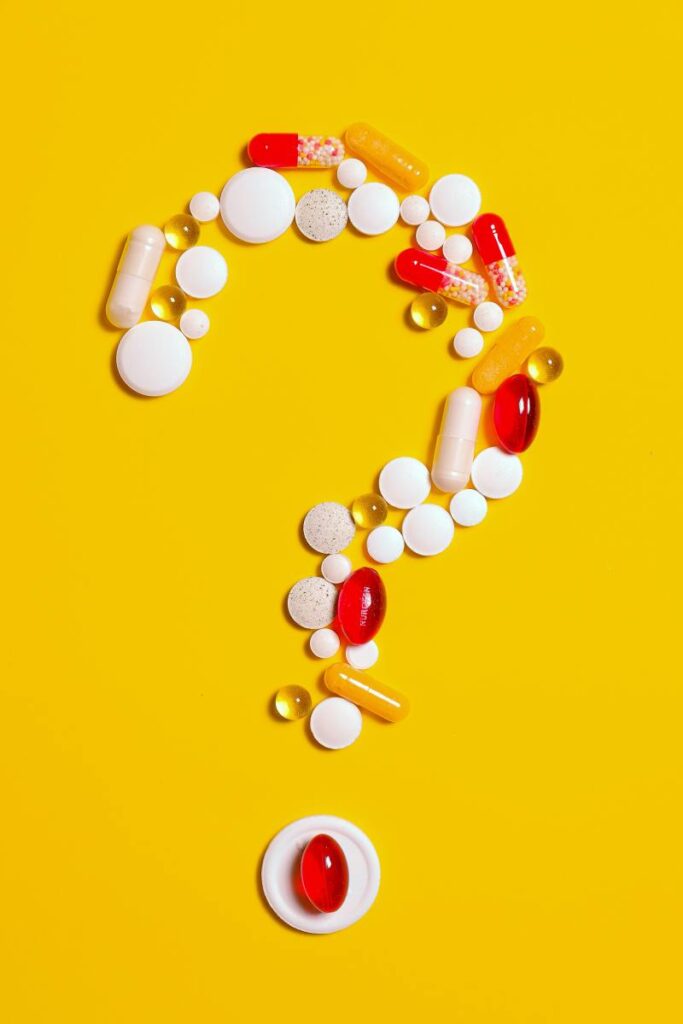"Nightlife always survives."
"It survived the great depression, and it survived the AIDs pandemic in the 80s," Joseph J. Palamar, Associate Professor in the Department of Population Health at New York University Langone Medical Center, tells EDM.com. "Nightlife will always come back."
The terms of the world opening up after more than a year of isolation, loneliness, and tragedy are uncertain. But there’s something we know for sure: we love to dance with our friends. And for the first time in more than a year, that feels like a genuine—and imminent—possibility.
As we write this piece, 39% of the U.S. population is fully vaccinated against COVID-19. It feels a bit easier every day to imagine that someday soon some of us will once again be safely dancing in a crowd.
However, when discussing the topic of substance use at music festivals and parties, Dr. Palamar's outlook is a bit bleaker. "I am a little worried that some people will go overboard," he said.
As the live music scene picks up the pieces of a lost year on its elusive quest to reopening, we’ve been thinking about how the effects of the pandemic may layer on top of existing risks for drug-related adverse events at music festivals. We also wonder if public health systems in the U.S. are prepared to support safety at music festivals. And if they are not, what can we do to fix that?
Risks of Doing Drugs at Festivals
Sometimes people experience adverse events while using drugs. These negative effects are not necessarily unique to music festivals, but can be enhanced and exacerbated by the physical and emotional intensity of their ecosystems. Research consistently shows that drug-related adverse events are to be expected in music festival settings.
There are many risks that affect these negative outcomes such as dehydration, overheating, exhaustion, taking too much of a substance, polysubstance use (ingestion of multiple substances—especially alcohol), and pre-existing medical conditions. Certain psychotropic substances also may further increase one’s risk by impacting our body’s ability to regulate heat.
Dinah Applewhite is a physician at Massachusetts General Hospital who also has lived festival experience. She notes that festivals are a "setup for dehydration and overheating given that people are dancing in close proximity, often in hot weather, with limited access to water."
Risks of Doing Drugs at Festivals in a "Post-COVID" World
Madalyn McElwain is the Chief Legal & Financial Officer at DanceSafe, a non-profit public health organization with a mission to "foster and advocate for safer, healthier, and more fulfilling experiences for people in music, arts, nightlife, and drug using communities."
As nightlife and music festivals return at a dizzying pace, McElwain told us that she thinks two of the biggest risks are lower tolerance and the potential for difficult emotional experiences to manifest following a period of prolonged isolation.
Applewhite added that just like anyone with a chronic health condition, people with "long COVID" or general longterm effects from contracting the virus need to take their health into account when making decisions about drug use.
Harm Reduction
With these risks in mind, harm reduction techniques are steps that both venues and individuals can take to ensure the safety of all. Harm reduction is a set of practical strategies and ideas aimed at reducing negative consequences associated with drug use.
COVID-19 also showed us that harm reduction is a life-saving tool when it comes to staying safe. Telling people to never leave the house was largely ineffective but giving people the tools to partake in activities in a safer way, such as masks, hand-washing, and social distancing—even if they chose to take risks—was a preferred strategy of public health experts across the country. We can take these lessons learned from the pandemic and apply them to creating a safer festival experience.
If festival-goers opt to take drugs at any given event, they need to consider the purity and dosage of their drugs as well as their methods of ingestion. Applewhite told us that attendees should be aware that mixing multiple substances increases risk, especially when one of the drugs is alcohol. In 2016, alcohol was involved in over 50,000 drug-related poisonings in the U.S., of which 85% involved the concurrent use of other drugs.
Both McElwain and Palamar stressed the importance of attendees developing a plan. The former recommends going with "at least one buddy that you feel safe with and trust," while the latter advocates for a short, five-minute checkin with your friends or group before going out. Palamar encourages a plan that includes questions like:
- Are we doing drugs tonight?
- If yes, how much?
- Are we getting them or do we have them already?
- If something is offered to us, are we using it?
- If so, what drug?
- Are we mixing it with alcohol?
Aside from individual changes, the onus is also on the event organizers and promoters to recognize the crucial role they play in ensuring the safety of attendees. Vital services for them to offer may include free water and "drug checking" services, among other measures. If organizers want to outsource, there are several organizations in the U.S. that offer harm reduction services at festivals and nightlife events.
Legal Barriers
McElwain and Palamar both told us that the biggest legal barrier to instating harm reduction services at music festivals is the perceived fear of prosecution under what is colloquially known as the RAVE Act of 2003. Festival organizers and insurers regularly use the RAVE Act as a reason to deny attendees basic harm reduction services, like drug education and even free water.
However, there is only one known case of prosecution under this law. Letters from the Department of Justice detailed on Amend The RAVE Act in 2018 confirm that the provision of water and drug education are not by themselves violations of the RAVE Act. Even though the risk of legal issues seems low, Palamar tells us that "no promoter or club owner really feels safe disseminating harm reduction information because they could get in trouble for it."
Another potential legal roadblock for festival organizers lies in state drug paraphernalia laws. They differ by state but in Massachusetts, for example, possession or use of fentanyl test strips is legal, but the delivery or sale of them is criminalized. However, in Pennsylvania it's a misdemeanor charge to even possess fentanyl test strips.

A demonstration of the use of fentanyl testing strips at the Rhode Island Department of Health Laboratory in January 2018.
Allison Shelley/Bloomberg American Health Initiative
A way to allow event spaces and organizers to more easily and legally provide harm reduction services would be to amend the RAVE Act and change drug paraphernalia laws. The Amend The RAVE Act organization pushes to do just that, and DanceSafe has a guide for advocating changes to drug paraphernalia laws in your state.
And while you’re advocating for harm reduction at music festivals, it’s important to remember that the burden of drug-related adverse events is low compared to the numbers for fatal and non-fatal opioid overdose across the United States. While "drug checking" should certainly be available at more music festivals, the measures that currently exist are mainly targeted towards music festivals.
According to Applewhite, who provides primary care and addiction medicine for many stigmatized and vulnerable people who use drugs, our advocacy is also needed to expand and improve access to dignified health care for all people who use drugs and not just a privileged few.
So What Now?
Applewhite notes that after a period of isolation, reuniting at festivals may prove to be profoundly healing and allow us to feel reconnected by a deep sense of community.
However, being in a festival setting and using drugs after a year away may also stir anxiety. Applewhite points to self-assessment as key, suggesting that people "should be mindful about how their mindset after a period of isolation may make them experience festivals or drugs differently."
If you’re wondering what steps you can take on an individual level, there are harm reduction measures you and your festival crew can take to have a fun, safe time while attending events:
- If you decide to use drugs, have a plan
- Dose a little lower if you haven’t used in awhile
- Test your drugs, if possible
- Eat something before going out
- Drink water before going out and while out
- Allow yourself to rest at some point during your time out
Everyone deserves to have a safe festival experience regardless of the substances they have taken. The promise of safely dancing together is on the horizon. Following these tips can help set you and your friends up for success. Advocating for change will allow others to have a fun, safe, and transformative time—for festival-goers now and generations to come.
Editor's Note: EDM.com discourages illicit drug use at music festivals.






